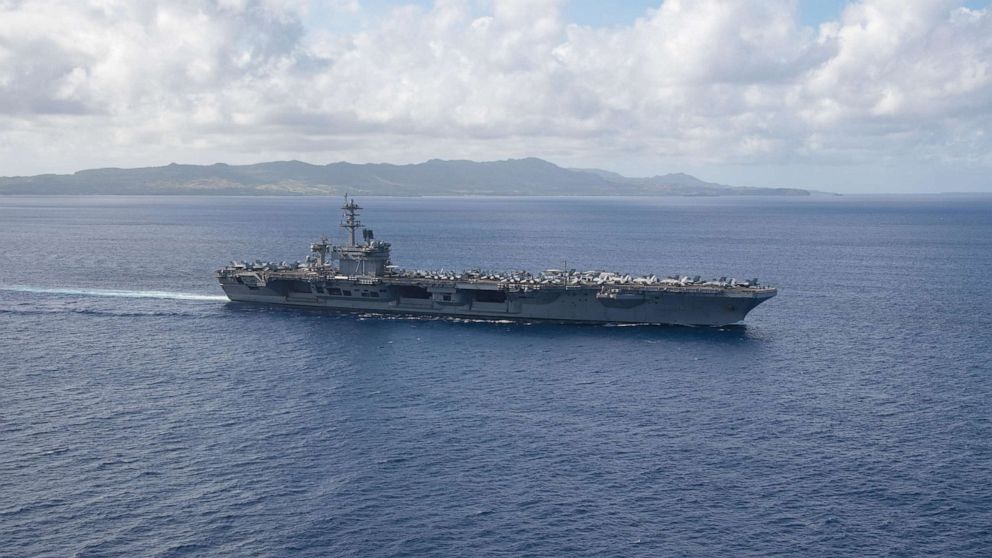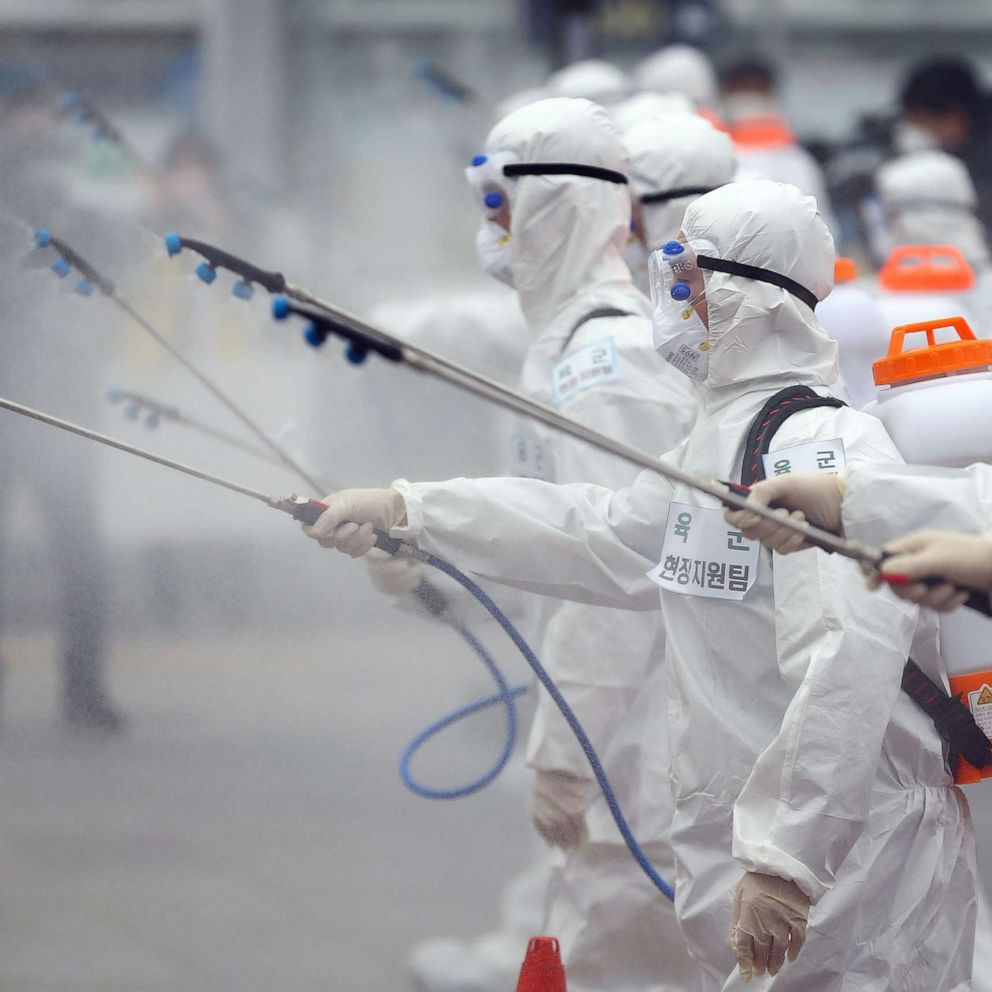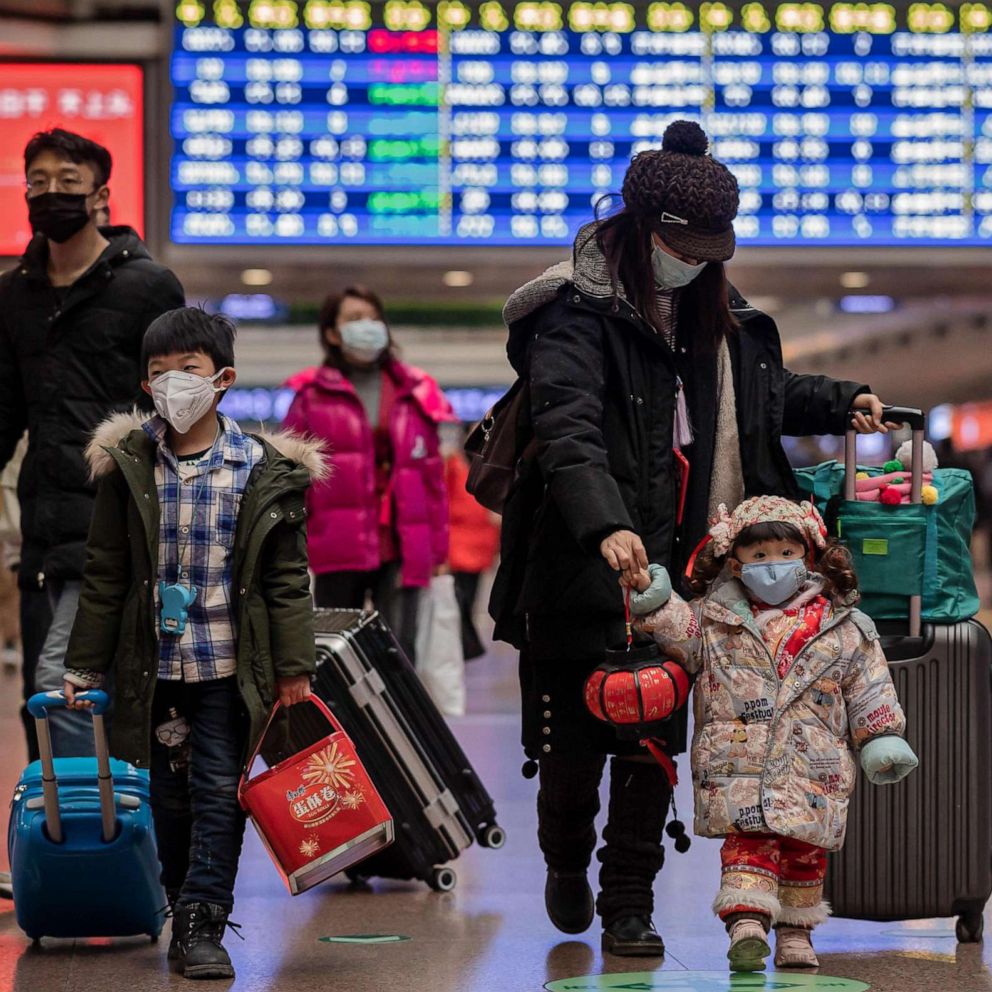USS Theodore Roosevelt captain confident ship can deal with new COVID-19 cases
The captain of the USS Theodore Roosevelt is confident the procedures now in place aboard the aircraft carrier will help identify and contain the coronavirus among the ship's crew as it conducts training off the coast of Guam for the next two weeks.
Those procedures include constant disinfection of the ship, as well as having each of the 3,000 sailors aboard wear a mask and fill out a daily questionnaire that can help identify flu-like symptoms and contain any possible infections aboard the ship.
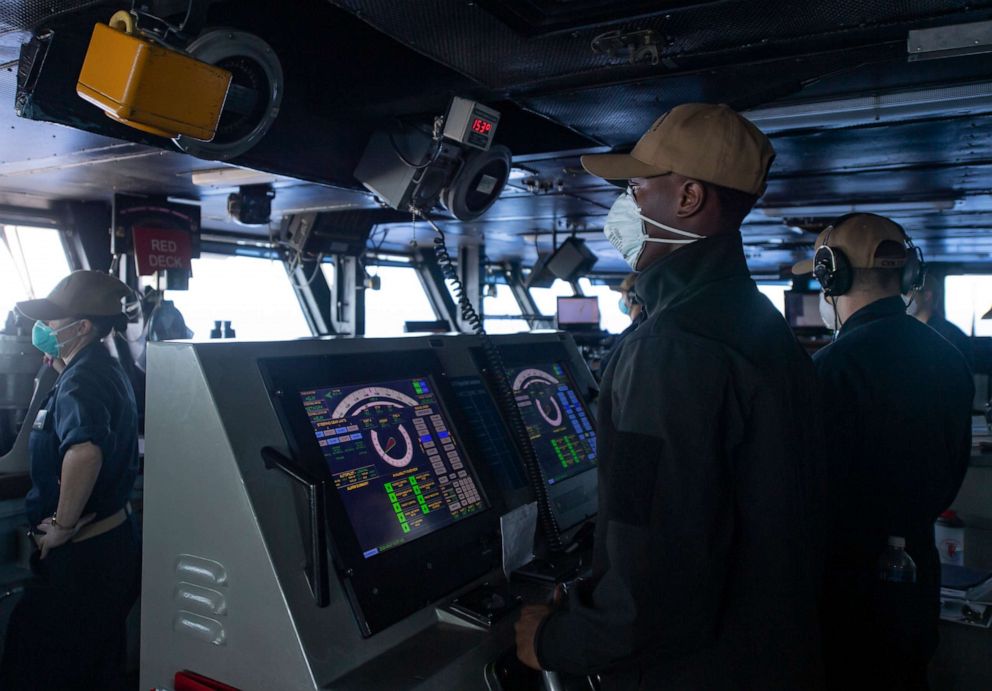
"While at sea we're enforcing strict cleaning protocols and maintaining social distancing" Capt. Carlos Sardiello said in a phone interview from aboard the carrier as it sailed in the Philippine Sea. The carrier headed out to sea on Thursday after almost two months in Guam as a quarter of the ship's crew tested positive for the virus.
"Everyone's under a medical protocol where they're evaluated at least once a day to ensure that they don't have any influenza-like illnesses," said Sardiello.
At its highest point, almost 1,200 sailors among the ship's crew of 4,865 tested positive for the virus, including one who died. Pentagon officials say about half of those who tested positive for the virus have recovered and are back on duty.
The Navy has adjusted its procedures as more is learned about how COVID-19 affects different individuals and remains in their system.
That includes the surprising development last week that 14 sailors had once again tested positive for the virus, weeks after they had cleared their self-isolation and twice tested negative. Sardiellos said there have been no other cases of "resurgent" positives among the ship's crew.
Tune into ABC at 1 p.m. ET and ABC News Live at 4 p.m. ET every weekday for special coverage of the novel coronavirus with the full ABC News team, including the latest news, context and analysis.
"Do we understand why that's happening? No, we don't know why," said Sardiello. "But what matters to me is the how, and the what we do to protect our environment here."
To start their shifts, department heads on the ship use thermometers to take the temperature of their sailors and review their answers to 10 questions about their medical status.
Any sailors who might have flu-like symptoms are sent to the ship’s medical office for evaluation and tested for COVID-19 and 20 other flu-like illnesses.
Sailors who test positive for COVID-19 will be isolated and medically evacuated off the ship and "all their close contacts would be traced and quarantined until we’d determined that they were not a threat to the crew," said Sardiello. "So basically, it’s a layered defense of prevention, mitigation and response."
While at sea Sardiello said that all of the sailors aboard the ship will wear N-95-like masks. When the sailors work in hot temperatures like on the flight deck, in industrial areas or in the kitchen, they will wear fabric masks. As the masks get worn or dirty, sailors are able to get brand new ones from the medical department.
"I think the key that everyone is discovering is if you break the chain between any two individuals, it's going to stop the transmission from one person to the next to the next," said Sardiello.
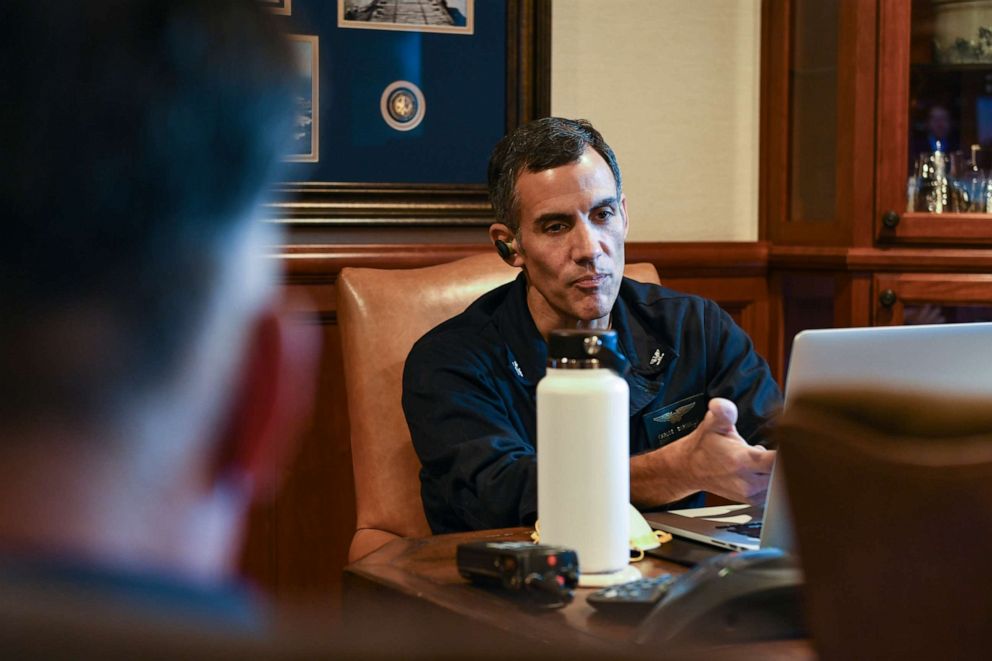
"Between our cleaning, our social distancing, the protective equipment that we're wearing all the time, it is a much different environment," he said. "And we have, in my opinion, based on what I've seen so far, a formidable capability to fight through this, should there be a introduction of an infectious disease on board this ship."
Navy officials believe the virus first came aboard the carrier through supply flights transporting personnel, equipment or mail. Sardiello said those flights will continue during this training cycle, but any new sailors coming to the ship will be quarantined for 14 days, and mail and other equipment will be set aside for a period of time and disinfected to ensure there is no contamination.
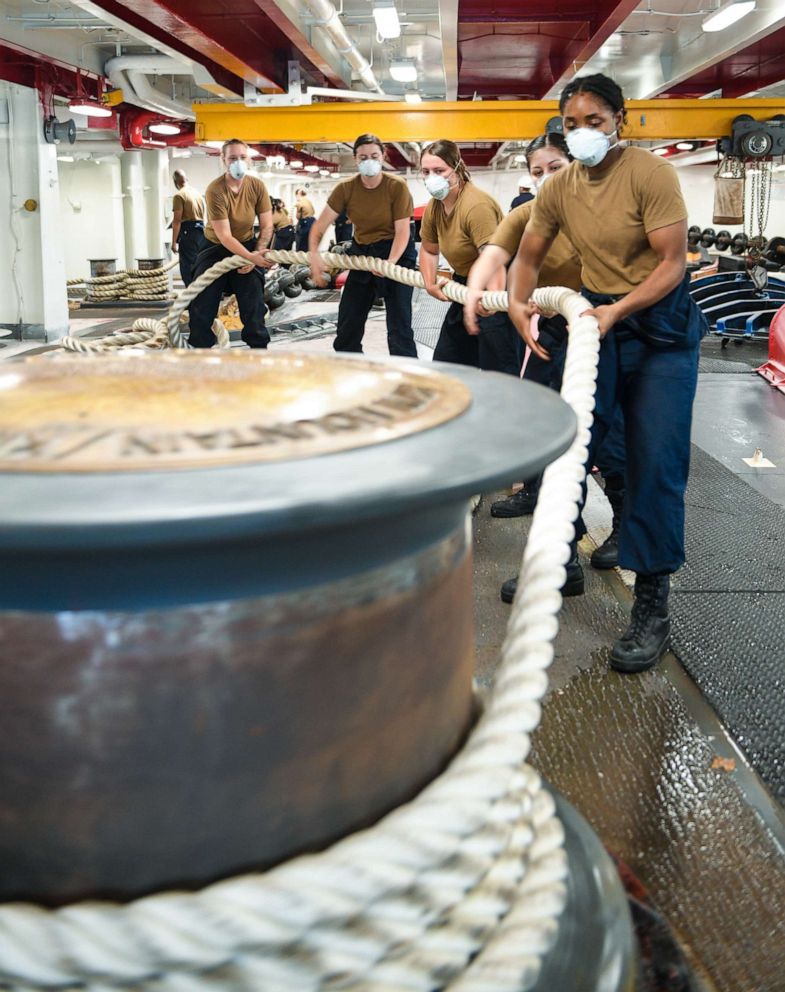
"That is a threat vector, anything that comes on and off the carrier, we have the same rigor, the same as walking on the pier to get on the ship to protect our clean environment out here," said Sardiello.
After it completes the 10 to 14 days at sea to re-qualify its pilots and ship's crew for operations at sea, the Roosevelt will return to Guam to pick up the 1,800 sailors who have remained on Guam to finish their self-isolation or self-quarantine.
After that, it is expected that the aircraft carrier will resume its deployment to the western Pacific. it remains unclear when it will return to its home port of San Diego.
What to know about coronavirus:
- How it started and how to protect yourself: coronavirus explained
- What to do if you have symptoms: coronavirus symptoms
- Tracking the spread in the US and Worldwide: coronavirus map
